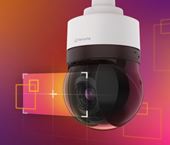Data security not only represents one of the top considerations when purchasing a drone platform, but a strong majority (67 percent) of the survey respondents worry that unknown entities could access the data they capture and manage from drones. Below are some of the key findings from the survey.
More specifically, 69 percent of survey respondents said they are somewhat to extremely concerned “that data captured by your drone program might be accessible to foreign governments or other entities that might be considered hostile to your organization/work.”
“I believe that the Survey shows how those in the domestic drone industry take data privacy concerns very seriously and that they are looking for drone solutions that can give them peace of mind that their respective data won’t be accessed by unknown persons or organizations, especially by countries of concern,” said Mike Walters, vice president, Teledyne Flir. “The Survey results also highlight the key challenges faced by commercial, industrial, and governmental UAS operators trying to balance UAS capabilities, budget, and data security.”
Top factors for purchasing a drone
In addition to the fact that 86 percent of those surveyed said that data security was important when considering the purchase of a UAS platform, the other top factors considered somewhat to very important included:
- 97 percent - Quality of the sensor payload(s)
- 90 percent - Ease of use
- 85 percent - Price
Meanwhile, nearly 95 percent of survey respondents indicated that their organisations have or operate UAS platforms not domestically sourced or originate from potential countries of concern. This illustrates that performance and budget often drive purchase decisions. More than three-quarters of respondents also want a Wifi connection, and they feel real-time third-party application connectivity is somewhat important to very important.
The survey highlights the concerns and practical trade-offs faced by drone pilots and their respective organisations today. Lower-cost, high-performance, connected drones from possible “countries of concern” currently dominate the commercial, industrial, and public safety industries. However, state and federal regulations are starting to build in requirements that drones originate from domestic companies or countries that are not of concern and have strong measures against unauthorised access to data. This reality highlights the need for cost-effective, high-performance, yet secure UAS platforms.
“To ensure drone industry professionals can work with the best drone technology that is also cost-effective and data secure, government regulators need to look at funding domestic drone development and procurement,” said Walters. “By making available more grants and incentives to public safety- and critical infrastructure-related organisations, local, state, and federal governments can help these critical organizations transition to data-secure drones originating from companies based in the United States and authorised countries.”
Teledyne Flir operates a drone programme, including its Siras UAS platform for public safety and critical infrastructure professionals.
Survey details
To gain a better understanding of the perceptions of data privacy in relation to UAVs, Teledyne FLIR surveyed 733 drone industry professionals in the United States who work in some capacity across public safety (e.g., police, fire, search and rescue, etc.) and critical infrastructure (e.g., power generation, utilities, transportation, etc.) industries. All survey participants were residents of the United States and at least 18 years or older. The Survey was administered through Pollfish survey software on Aug. 16 – 30, 2023. The estimated margin of error for a survey of this size is +/- 3.5 percent.




















